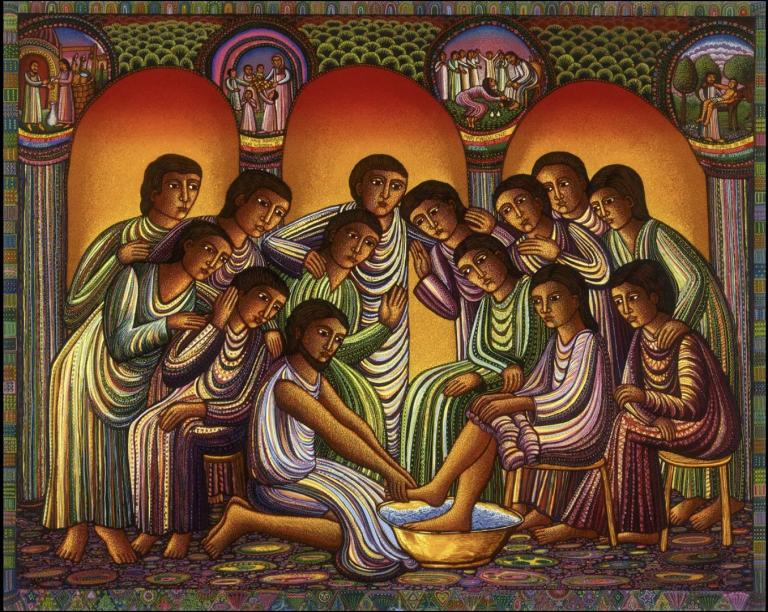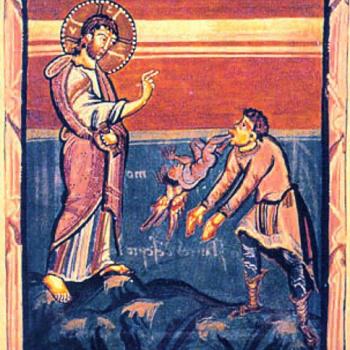Nijay: Rev. Dr. Dennis Edwards wrote an amazing new book called Humility Illuminated. He kindly agreed to write a short essay about his book for my blog. Read it and I hope you will be inspired to read his book.
Let’s Stop Celebrating Arrogance
by Rev. Dr. Dennis Edwards (North Park Theological Seminary)

I’d often thought that humility meant viewing myself as insignificant. Humility seemed to require me to downplay my strengths so as not to offend others, or not to appear arrogant, or not to project too much self-assurance. Others said I needed to minimize myself so as not to get a “swelled head,” as they put it. But such self-deprecation is not humility—and self-denigrating thinking damages the psyche. As a minoritized person who grew up at a time when schools in the USA were trying to figure out how to desegregate as the new laws required, my uniqueness as a person was trivialized. I was not invisible—people saw my blackness—but I simply blended into the shadows, being expected to defer to white people. Popular notions of humility that emphasized self-deprecation reinforced my marginalization instead of helping me to flourish. Even the Christianity that I experienced through decades of my life sent me mixed messages about humility. On the one hand, humility is something we should aspire to, yet on the other hand Christians celebrate arrogant and self-centered leaders even though their bravado and machismo minimize others.
Consequently, I wrote Humility Illuminated because I wanted to understand humility better. I sought to explore how the Christian Scriptures defined and treated the concept of humility. Perhaps there was more to humility than what I was learning from the Christianity that I was witnessing. As I began to research and write, stories emerged of pastors who abused congregants and church leaders who enabled abusers or refused to censure bullies. But I am old enough to remember similar situations from several decades before the advent of social media. Some Christians will tolerate evil leaders in order to be part of something big, because to many people, size is an indicator of success. I always planned for Humility Illuminated to feature the fruit of sound exegetical work, examining biblical passages, but would also address practical areas of life—particularly for people involved in churches. My decades of pastoral ministry provided more than enough experiences for me to draw upon that I hoped might speak to readers.
As I moved from the Old Testament into the New, I came to see that the way the Bible treats humility is much how the virtue operates. Humility has a trajectory. What I mean is that early discussion of humility, such as one found in Numbers 12:3 (“Now the man Moses was very humble, more so than anyone else on the face of the earth.” NRSVue), emphasize people’s relationship with God. A similar thing happens when the OT compares the fear of the LORD and humility (e.g., Proverbs 15:33; 22:4), or connects humility and repentance (e.g., 2 Chronicles 7:14, Zephaniah 2:3). The OT communicates that humility starts as submission to God. Of course, humility does not stay there, it guides the way we interact with others. As Bible-readers might notice, as they continue to read through the Old Testament and into the New, they see the way humility functions in interpersonal relationships. The trajectory from OT to NT mirrors humility’s trajectory: it starts with us yielding to God and then governs our relationships with other humans. I have come to define humility as a posture of submission to God that works itself out in acts of peacemaking, including dismantling injustice and contributing to the flourishing of all creation.
I suggested at the outset that our contemporary society—including Christians—struggles to define or embrace humility. We do not always see it as a virtue, especially if we think of it as passivity, or self-deprecation. Our competitive society makes it particularly difficult to pursue humility. Such was the case in the early days of the Christian movement. The competitive Roman world did not value what Paul, Peter, and other NT writers admonished. The words for humility in the Greek New Testament were not used positively in the broader Greco-Roman world. The Christians made humility a virtue and in so doing, made humility a marker of what Jesus-followers looked like. This is to say that Christians became known as humble people. I could not help but wonder, “What are markers of Christian identity in our society?” I know that in segments of our society, Christians are known for being antagonistic, hateful, bigoted, stingy, oppressive, arrogant—and surely other unflattering descriptors. I dare say that many onlookers do not associate humility with Christians.
Yet we know that the ultimate picture of humility is that of Jesus, who we would not honestly describe as passive or weak. Yet, he offers himself, according to Matthew’s Gospel, as an example of humility (Matthew 11:29) and the apostle Paul eloquently portrays Jesus’s humility as he emptied himself, taking the form of a slave (Philippians 2:7) and submitted himself in obedience to God the Father (Philippians 2:8). Followers of Jesus ought to pursue the pattern of humble Jesus (“Let the same mind be in your that was in Christ Jesus”; Philippians 2:5 NRSVue).
My hope is that Christians will retrieve humility as an identity-marker. In doing so, we might ameliorate tensions among Christians as well as tackle some of the seemingly intractable problems in our society. Rather than fighting each other, or seeing the broader society as adversaries, we would adopt a collaborative posture with each other and be increasingly willing to listen and learn from others—even those who have not been part of our particular group. Some of the topics I write about are how we shape community, deal with conflict, worship, navigate suffering, and steward resources. Humility is critical in each of those things and more.
And as I push for humility, I am keenly aware that there are many in our world who are already at the bottom of society. It is cruel to tell people who are humiliated that they need to go lower. Even so, I still believe humility finds a place among the humiliated. Humility does not, however, require the oppressed to go lower, but does ask for their faith. Faith will empower those who are relatively powerless in the world. God is on their side. There is, after all, a refrain that runs throughout the Scriptures and finds itself—with some variety in wording—in the writings of the Apostolic Fathers along with other Christian documents: “God opposes the proud but shows favor to the humble” (cf. Proverbs 3:34; James 4:6; 1 Peter 5:6).
I’m sure most of us do not want to be in opposition to God and we all hope to experience God’s favor. Humility Illuminated attempts not only to explain humility but invites us to practice it.
Nijay: There you have it! Doesn’t it make you want to order Dennis’ book right now??? (Do it! Do it!)













